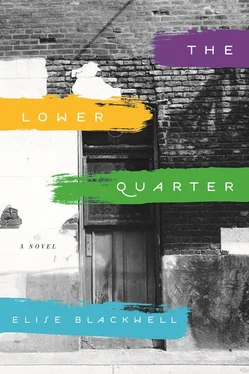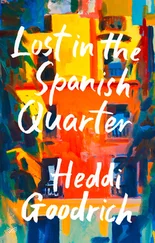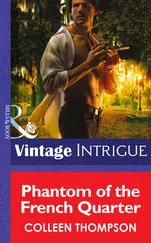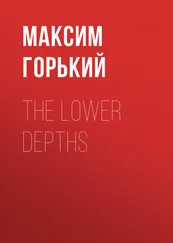Illegal collectors tend to be motivated by money or covetousness. The first kind acquires stolen works to trade or sell. The second enjoys the onanistic pleasure of having a painting all to himself. Most collectors were a mix of all of this, and many legal collectors were also illegal collectors — an easy ethical blur.
Eli would need to meet with Fontenot and place him somewhere in this messy chart. The queasy place in his forehead reasserted itself when he thought about another line of inquiry he would have to follow: How was Johanna connected to Gerard Fontenot? He again brought up on his computer the photograph of her, glaring in her emerald dress.
Johanna
When the phone rang, Johanna was waiting for the coffee machine to fall silent. She’d awakened very early in order to get some work done before Elizam arrived to watch the Halloween parade, and a call at this time was a surprise.
The voice on the other end was female and older. “I’m calling about Maxwell,” it said.
Johanna started to tell the woman that she had the wrong number, but then she remembered a painting she’d cleaned about two years ago and assumed she’d been referred as a client. “Do you mean the Maxfield Parrish?”
“Maxwell,” the woman said. “I’m calling about my dog.”
Shivers climbed Johanna’s arms in lines.
“I saw your flyer. I think you might have my little Maxwell. I’m desperate to find him.”
Several ideas passed through Johanna’s mind, including telling the woman that the dog’s owner had already been found or even that the dog had died, cruel as she knew that might be. “Yes,” she said after what she knew was much too long a pause. “I found a small dog in the Garden District.” She agreed to let the woman stop by later that morning to identify the dog. “I have somewhere to go later,” Johanna said, perhaps simply because it was so rarely the situation that this would be a true statement. “So come by in the late morning.”
The little dog watched her pour her cup of coffee, waiting for her to sit and stretch out her legs for him to lie on. She remained standing; they would have to get used to not being part of each other’s day. Unless this dog was not the caller’s Maxwell. Finally Johanna sat on the sofa with her legs outstretched and crossed at the ankle. The dog jumped up, settled into the crevice between them, the ridiculous stump of a tail pointing toward her and his chin facing away, snout buried between her knees. They fit each other perfectly.
Perhaps the woman who called was not merely a mistaken owner but a liar — a hoarder of animals working out of some dark psychology or a person who made her living stealing pets and selling them to pharmaceutical or cosmetic laboratories needing animals to test their products. Johanna vowed not to take the woman’s word for it that the dog was hers. She would let the dog tell her whether the woman was his rightful owner, whether he wanted to go with her or stay with Johanna.
As she walked the dog up Elysian Fields and back, wondering if this would be their last stroll together, she let him stop and smell whatever he wanted for as long as he wanted. She wondered what a dog’s memory was like, if he would remember her as she remembered her father or even less than that. She hoped that she would at least be a smell in a dream during some afternoon nap. Back at the workshop, she considered taking a picture of him but instead went to work on a small oil painting.
Before noon the door bells jangled. The woman was in her fifties, stout and dark, well dressed in a slightly flamboyant print blouse and black slacks. The dog ran to her, stretched in front of her like a bull, his front paws tapping a dance. He leaped as high as her knees several times, turned three circles, and then leaped again. This time she leaned over and caught him in midair. She held him to her face, which he licked energetically. “Maxy, Maxy, Maxy,” she said.
Johanna stood there, useless.
“Thank you so much,” the woman said. “I’ve been beside myself, going from shelter to shelter. When I saw your notice I was afraid to even hope.”
Johanna shrugged.
“You must let me give you a reward,” the woman said, shifting to hold the dog in one arm so she could reach the large purse hanging from her shoulder.
Johanna shook her head.
“At least to cover his food.”
“He doesn’t eat much,” Johanna said, thinking of the almost full bag of dog food upstairs. She should go get it, she thought, give it to the woman to take away with the dog, but her body didn’t move.
“Well, then, thank you for taking good care of him. If you ever need anything …”
“If you ever decide you cannot keep him for any reason,” Johanna started to say, but the woman smiled a feeling-sorry-for-you smile that told Johanna that was never going to happen, not in a million years.
When the woman asked her if she wanted to hold the dog, say good-bye, Johanna shook her head again but walked across the room and held her hand on the dog’s small head for a moment. The woman left with the dog, disappearing down Decatur out of Johanna’s view. Johanna stood alone before one of her windows, watching ornamented people walk by, all moving to the right, toward the bar where the parade would begin in several hours.
She returned to the oil she had been working on: a mediocre still life whose theme of the transitory nature of life on Earth was made too obvious by the unskilled foregrounding of a rotting fish. Tears came into her eyes, a stinging ring, but they retreated before they fell.
It was not often that Johanna experienced the impulse to revise. The history of art restoration is splattered with revision, some acts of erasure or reinvention done for practical reasons and others for some combination of the aesthetic and the ideological. The example Johanna had studied in the most detail was Sassoferrato’s Virgin and Child Embracing because her mentor had been a student in the 1980s, when the painting was cleaned and the revision discovered and investigated.
Charles Eastlake, who had been Keeper of the National Gallery in the mid — nineteenth century, had been stung by controversy after freeing several old Italian paintings from varnishes that had browned with age, violating London museumgoers’ notions that old masterpieces used somber palettes. When he acquired the already-cleaned Sassoferrato, he bowed to those notions by having the virgin’s electric-blue robes painted over in cobalt (a color painters would not have had access to until a hundred years or so after Sassoferrato’s death) and the lighter portions of the painting, including the pale faces of mother and child, darkened with what his notes referred to as a patina . She knew, too, of a case in which a restorer had painted over an ox’s head on the grounds that the snout was too close to the infant Jesus.
In her own work, the stakes were not so high, but there were times when she warned clients that a real cleaning to remove old varnishes might leave them with a painting that no longer matched their sofa. Occasionally someone requested small “improvements” in the works they left in her care, and she was not above granting such requests if they fell plainly within the boundaries of her abilities.
She looked now at the rotting fish on the canvas before her with an eye toward toning it down to compensate for the fact that it had been painted too large for its position on the canvas in a violation of perspective and, it seemed to her now, decency. In the end, though, she left it as it was and did only the work she had been contracted to do.
Eli’s arrival startled her, and she was pleased to see that she had not been watching the clock, nor thinking about the dog she would never again see.
Читать дальше












